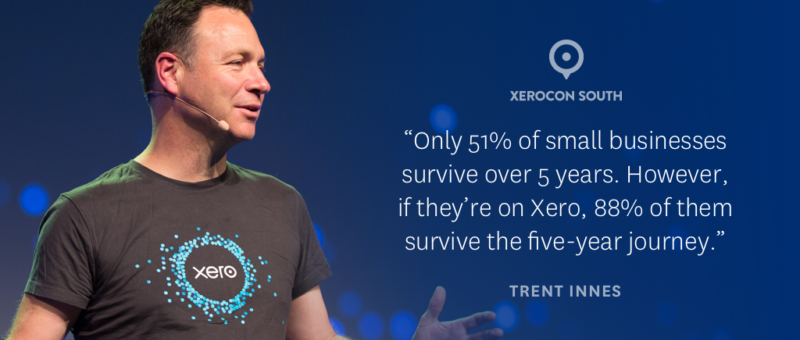From Zero to (Xero) Hero: Own your numbers!
From Zero to (Xero) Hero: Own your numbers!
At Hawkins & Co., we’re proud to work with many young or start-up companies. We’re also proud to work with the Small Business Centre windsoressexsmallbusiness.com, a division of the WindsorEssex Economic Development Corporation. The team members there are an excellent resource for small and growing businesses. Call them.
This blog post is to tell you about a new programme called scaleUP Accounting http://www.windsoressexsmallbusiness.com/scaleup. It is being launched in January 2017 as a partnership between Hawkins & Co., Small Business Centre and Xero https://www.xero.com/ca/. If you haven’t heard of Xero yet, it’s a cloud-based accounting system that is truly 21st century. It’s what we use ourselves, and recommend to our clients.
We hope this new programme will help move the needle for young businesses. Here’s why …
Why you should own your numbers
OK, I’m an accountant. So you won’t be surprised if I tell you there are good reasons to “own” the numbers in your business. By that, I mean that they should be reasonably accurate – and actually help you make business decisions.
We all know that new businesses have a high mortality rate. There are many different statistics on this, some of which you can read here. Some have gone bust, others simply may not have made enough money to justify the owner’s continued blood, sweat and tears. Doesn’t matter: either way, a lot of investment (cash and emotion) goes down the drain each year.
This is a plain fact: If you own your numbers, you are much more likely to celebrate your 5th business birthday (and more). And there is a high correlation between those who do thrive and survive, and those who have control of their numbers. Here’s Bill Kimball bill.kimball@xero.com from Xero:
“small businesses working on Xero are much more likely to grow and thrive. Where only 51% of small businesses survive more than 5 years, 88% of those on Xero will still be around to celebrate their fifth birthday.”
“Businesses that use an advisor grow their net profit by 23% more than businesses who don’t”
Here is a link to an article from Xero’s blog “Rewiring the economy to help small businesses survive” https://www.xero.com/blog/2016/09/rewiring-economy-to-help-small-businesses/?region=ca
There are three basic reasons why a business does not survive its start-up phase – or struggles to achieve its full potential. Here they are, with genuine examples from people I’ve worked with in the past. All names have been changed to protect the clueless or the unlucky. In some cases, we met them too late to help them.
1. The business just isn’t profitable.
Dave launched a business making and selling specialist tools. If you looked at the full cost of producing them (including import duties on components), he was actually losing money on each one he sold – even before he paid the rent on his workshop. He didn’t work this out until he was $50,000 in the hole. Which he’d borrowed from his uncle.
Sometimes, a business plan can be well-developed, robust, plausible – and the expected market just isn’t there. You have my genuine sympathy and respect – you took a business gamble, and it just didn’t work out.
How owning your numbers can help: Dave could have saved much tension at family reunions if he’d understood why his bank balance kept going down. But, even if you’re more plugged-in than Dave, understanding your numbers can help you identify hits or misses much sooner – and give you time to take corrective action.
2. The business is undercapitalized.
Jim and Rick started a business as a high-quality supplier to specialist retail chains. They made good money on what they sold – but it took time for them to build up enough sales to cover the rent and other overheads. Because they didn’t have enough money to start with, they struggled to buy equipment and vehicles they needed to boost their sales.
“Undercapitalized” simply means “not enough money to get through the start-up phase.” Many great businesses – which now have a long history of growth and profit – lost money for their first couple of years. If you don’t have enough money to cover those losses at the start, you’ll never become one of the survivors. Jim and Rick are now past that and own a fantastic business – but it was ugly for a while.
How owning your numbers can help: OK, there is no silver bullet: banks are cautious of start-ups. But there is no arguing that you’re more likely to get financing – from any source – if your numbers look sensible, are not obviously scribbled on a napkin, and you can explain them. You’ll also be better-informed to flex your plans, if you have to.
3. People make bad decisions based on bad information.
Boris had never read my blog post on HST http://hawkins-accounting.ca/hst-101/ so he didn’t realize that $13 out of every $113 he collected from customers had to be sent to the government. So he took it out of the business and spent it. Revenue Canada tracked him down, drained his bank account, seized and sold his business assets, and also took his nice new Porsche. Yes, they can do that.
How owning your numbers can help: This is basic. Boris had a viable business, but just had no idea of what he actually owed to his suppliers or the taxman. So he lived beyond his means. It was great, while it lasted.
HOW WE CAN HELP: Here’s a link to an information session for the new program. http://www.windsoressexsmallbusiness.com/scaleup Have a look. We’ve worked hard to keep the cost accessible for small businesses. We hope it helps.
Kind regards
Jules

